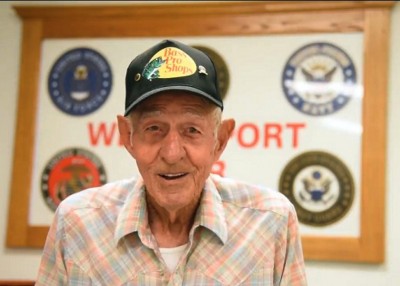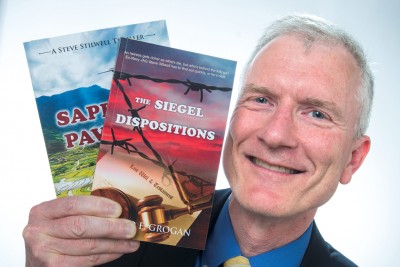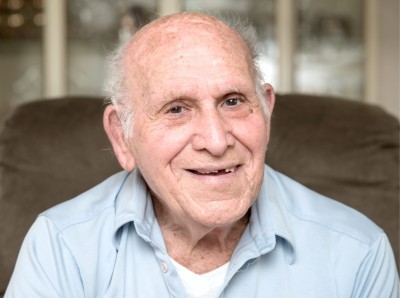Steve Stanley
By Paul Wood

Photo By Rick Danzl/The News-Gazette
URBANA — Staff Sgt. Steve Stanley had top-secret clearance, and was assigned to a secure area from which tactical nuclear missiles could be signaled to be fired while he was stationed in Germany.
In his 20 years in the Army, Stanley served everywhere from the sweat-soaked jungle of Thailand to 60-degrees-below Alaska, with two stops in Germany. He retired in 1995 after a variety of duties, which included a stint in recruiting he didn’t care for.
Born in Champaign and raised in Clay County, Stanley, 59, enlisted right out of high school as the Vietnam War was ending in 1975.
He was first stationed at a top-security base in Thailand while Southeast Asian wars and revolutions dragged on.
Ramasun Station, about 300 miles northeast of Bangkok, had a massive antenna that monitored radio chatter from half of the world.
The prototype for the antenna, which locals called the Bird Cage, was located south of Bondville, Stanley said.
While the Thai army was still active in the Mekong Delta, he said, Ramasun Station served as a listening post to monitor Chinese military movements.
Stanley had a secret clearance to work there.
“It was right in middle of a rice paddy, but the two-story barracks were air-conditioned, with swimming pools and 24/7 USO,” he recalled.
The base was soon closed and Stanley moved from one command to another.
Based on his security clearance, from 1982 to 1985, he was in Wurzburg, Germany, in the Third Infantry division, at Leighton Barracks.
Stanley was part of a two-man rotation in a secure area at division headquarters, working 12 hours on and 12 hours off maintaining secure communications in “flash traffic.”
The rule required that all access and actions have the presence of two authorized people at all times, he said. If necessary, the shift could go to 18 hours, with six hours of sleep, he added.
The soldiers decoded and encoded reports about major incidents, and had the combinations to locks for safes for missile sites, if it ever came to the use of tactical missiles or nuclear missiles for battles.
“It could be very intense at times. Fortunately, all of it was for practice,” he said.
Stanley traveled all over the world, including a second posting in Germany.
When he was at Fort Greely in Alaska, pretty much the opposite of Thailand’s climate, the severe cold took a toll on his hands.
Another tour of duty using his security clearance was at Raven Rock Mountain Complex, an installation with an underground nuclear bunker in Pennsylvania.
“Site R was a cave that could withstand a nuclear bomb, with a big old blast door,” he said, with emergency centers for the Army, Navy and Air Force.
It was a smaller version of the Cheyenne Mountain Complex in Colorado Springs, Colo., a type of center fictionalized in end-of-the-world movies.
One of Stanley’s last duties was in recruiting in Long Island, N.Y., where his Midwestern accent didn’t give him much help.
Unable to keep up his quota, he was relieved of that duty, and relieved to be relieved.
After his 20 years in, he lived in New Jersey with his wife Patricia.
After getting a degree, he returned to work, in cancer research. Following his wife’s death, he moved back to the area to be near family.
Stanley made yet another career change, to be a pastoral care minister through Grace Baptist Church in Urbana.
He said his faith sustains him even after health problems have reduced his mobility.
Do you know a veteran who could share a story about military service? Contact staff writer Paul Wood at pwood@news-gazette.com.
Read more stories from local veterans:
 Dale Sullivan
OGDEN — Dale Sullivan never found out why the Japanese lit up his battleship with flares one night in the South Pacific. …
Dale Sullivan
OGDEN — Dale Sullivan never found out why the Japanese lit up his battleship with flares one night in the South Pacific. …
 David E. Grogan
URBANA — From blasting Somali pirates with Barry Manilow music 24/7 to working with navies from around the world in the …
David E. Grogan
URBANA — From blasting Somali pirates with Barry Manilow music 24/7 to working with navies from around the world in the …
 Michael Palmisano
CHAMPAIGN — In a Philippine Islands jungle in World War II, Japanese snipers picked off American soldiers from the trees …
Michael Palmisano
CHAMPAIGN — In a Philippine Islands jungle in World War II, Japanese snipers picked off American soldiers from the trees …